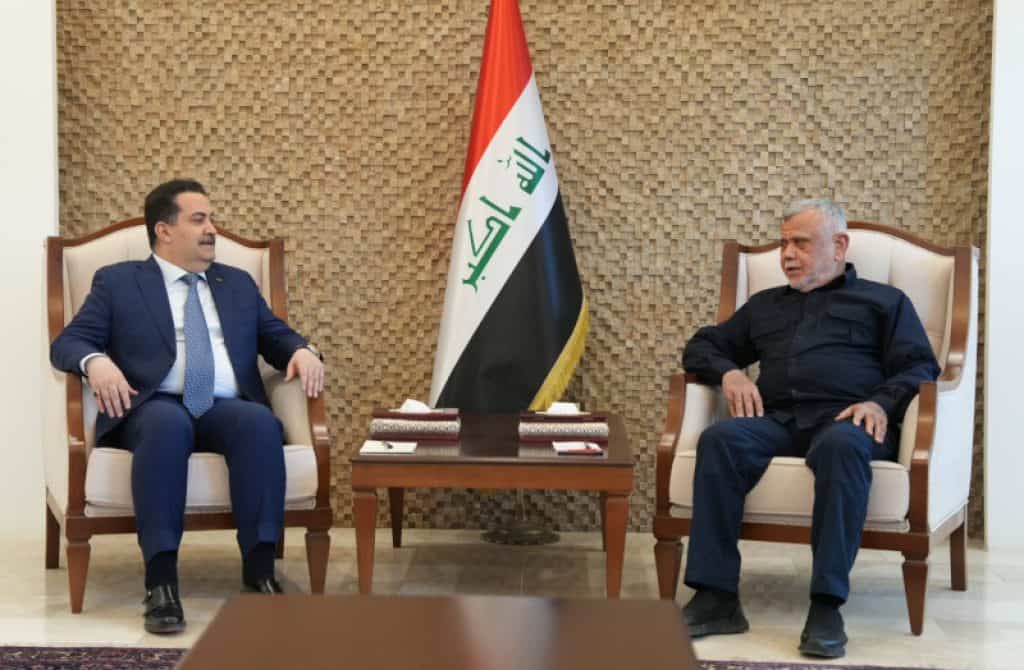
The Coordination Framework, the ruling Shiite alliance in Iraq, announced its intention for parties to run on separate lists in the November 11 election but reunite the coalition under the same name after the vote. Prime Minister Mohammad Shia al Sudani, who is part of the bloc, formed a government in 2022 following contentious elections in which prominent Shiite cleric Muqtada al Sadr’s party won the most votes but failed to gain the required support to form a government.
The parties in the Coordination Framework previously ran on separate lists in the 2023 provincial elections in areas where Shiite parties would not be threatened by Kurdish, Sadrist, or Sunni blocs.
The Coordination Framework has faced rivalries and division since its early days, but the dominant split heading into the election is between factions that align with the current government and those who criticize it. The pro-government politicians include Prime Minister Sudani, Wisdom Movement leader Ammar al Hakim, Badr Organization Secretary General Hadi al Ameri, and Popular Mobilization Forces Chairman Faleh al Fayyadh. Major politicians who are critical of the current government include former Prime Minister Nouri al Maliki of the State of Law Coalition and Qais al Khazali, the leader of Asaib Ahl al Haq.
The Badr Organization and Asaib Ahl al Haq are two of the most prominent elements of the Popular Mobilization Forces (PMF), an Iraqi government organ predominantly comprised of militias backed by Iran. The Wisdom Movement and the State of Law Coalition are powerful Shiite political wings born out of Iran-aligned political parties.
One current disagreement between Shiite factions is over Sudani’s decision to engage with Syrian interim President Ahmed al Sharaa and invite the Syrian leader to the Arab League summit in Baghdad next month. Sharaa is deeply unpopular among many Iraqi Shiites due to his jihadist history in Iraq, affiliation with Al Qaeda, and role in deposing Bashar al Assad, Iran’s ally in Syria. The controversy over the government engaging with Sharaa is intensifying political fractures already under strain from US pressure to disarm Iraq’s militias, a position the Iran-aligned factions strongly oppose.
Earlier this year, the Service and Retirement Law, which sought to “formalize and regulate the PMF,” exacerbated differences within the Coordination Framework. The law was intended to enshrine the rights of PMF members, similar to service and retirement laws for other government and military branches. However, some considered the legislation’s inclusion of a retirement age to be an attempt to force leadership changes among the paramilitary force, as roughly 400 senior officers would be compelled to retire, including PMF Chairman Faleh al Fayyadh. Ultimately, the law did not pass despite boycotts of parliamentary proceedings and other attempts by the State of Law Coalition and Sadiqoun, Asaib Ahl al Haq’s political party, to force the agenda. New PMF legislation was subsequently introduced and is still under consideration.
Muqtada al Sadr announced in March that he would not participate in the upcoming election, though he instructed his followers to update their voter identification. Despite the firebrand cleric maintaining significant popularity and public engagement, he proclaimed, “As long as corruption exists, I will not participate in a limping electoral process that is only concerned with sectarian, ethnic, and partisan interests.” Many Iraqi Shiite politicians have encouraged Sadr to participate in the upcoming election due to concerns over its perceived legitimacy.







